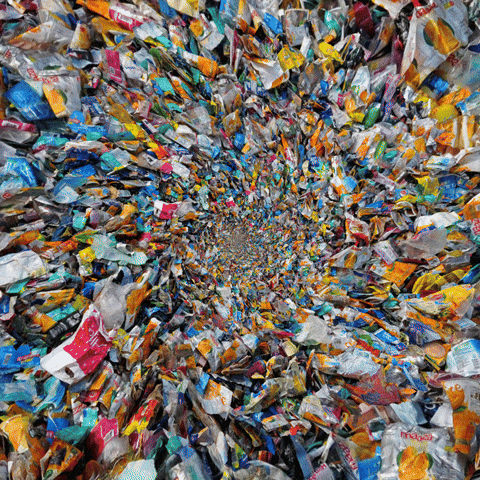Waste disposal is a tricky topic to talk about. We have very strong opinions about our trash and what it should be used for, but we often throw away things without giving them much thought. Yet, waste disposal is an integral part of daily life. Whether a small business owner or homeowner, you will notice the impact of improper waste disposal on your surroundings. You may have lived in one place for years but have never considered that your waste disposal is taking its toll on the environment. Waste disposal is not just about clean streets and fresh air; it also helps us reduce carbon emissions.
Waste disposal is a necessary process that plays a role in keeping our environment clean and safe for future generations. It also helps us clear our streets of debris, making it easier for drivers and pedestrians alike. In addition, we have laws to ensure that the waste we produce is disposed of correctly. One of the main reasons we feel so strongly about proper waste disposal is its positive contribution to the environment. Not only does it keep our streets clear of any rubbish, but it also lowers any negative impact waste disposal may have.

We produce many different types of waste in our daily lives. Some of these materials can be recycled or reused, but some cannot be recycled or reused at all. So instead, these materials go to the landfill, which contributes to greenhouse gases, soil erosion and pollution of water sources. Waste disposal also harms the amount of methane released into our atmosphere as landfill gas. Landfills are often full of plastic bottles, cardboard boxes and other plastics. These materials take hundreds of years to break down naturally and release methane when burned as fuel for electricity generation or as an energy source in vehicles such as cars and trucks.
Let's discuss some of the recent statistics on landfills and garbage production in India:
- India generates 62 million tonnes of waste annually.
- Only 43 million tonnes (70%) are collected.
- Only 12 million tonnes are recycled.
- The rest, 31 million tonnes, go to landfills.
How does the municipality segregate the waste?

Separating your waste can help the environment by preventing it from being dumped in landfills or burned. The municipality will have a bin for each type of waste, so you can throw away only what you need. If your trash includes food waste, use biodegradable bags to ensure that it decomposes quickly and does not pollute the environment. You can use TheBetterHome's Biodegradable garbage bags. These dustbin bags are eco-friendly and easy to compost.
Waste segregation is a process that separates waste by type. This is the most efficient way to handle your waste because it makes it easier to manage and separate your trash into dry and wet. The municipality segregates waste into dry and wet. Dry waste includes wood and related products, metals, glass bottles, aluminium cans, etc. It also includes other items like packing materials and paper products.
Wet waste is generated from eating establishments, households, offices and other commercial places. It includes food scraps, grease, grease containers and so on. The municipality segregates these two types of waste separately so that they don't mix and create a mess in landfills or dumpsites where they are disposed of later on.
Difference between Waste segregation and Waste Sorting:

Waste segregation is a crucial component of the government's plan to reduce waste going into landfills. A waste segregation scheme will have separate bins for garbage, paper, plastic, and food scraps. These must be placed in the appropriate bin to prevent further pollution.
The critical difference between waste sorting and recycling is that waste segregation separates dry from wet for reuse or recycling purposes only. The other difference is that a municipality does not sort dry recyclables like glass bottles or paper cups before they are taken to their destination for recycling since these items can be reused again after being sorted first, so they do not need additional processing at this point (this process is known as sorting). There are also exceptions, such as plastic bags, which are not always recyclable but can be reprocessed with another material if used as an alternative green material or composted.
Tips to reduce daily waste:
- Avoid plastic food wrappers.
- Don't overbuy household items.
- Carry your own bag while you go grocery shopping.
- Support local economy; stock up weekly from local shops to avoid wastage.
- Avoid single items like cutlery, straw, plastic bags, cups or food items like pre-packed salads, sandwiches, yoghurt, etc.
- Avoid buying plastic bottles; go for reusable copper or steel bottles.
- Buy reusable storage containers.
- Avoid plastic straws; if it's too necessary, go for reusable steel straws.
- Drink loose leaf tea.
- Compost your food waste.
- Instead of buying, cook your own food.
- Use silicone mats for baking.
- Make sure to recycle your household items or wastage: for example, crushed egg shells can be a great fertilizer for your plants.
- Replace cotton pads with menstrual cups
